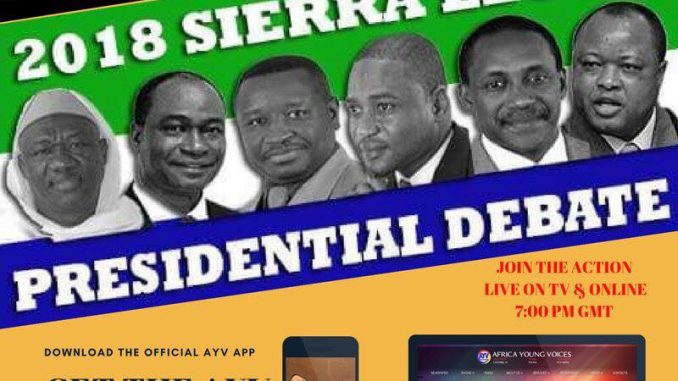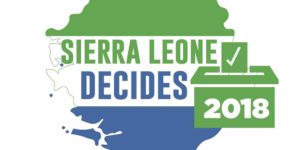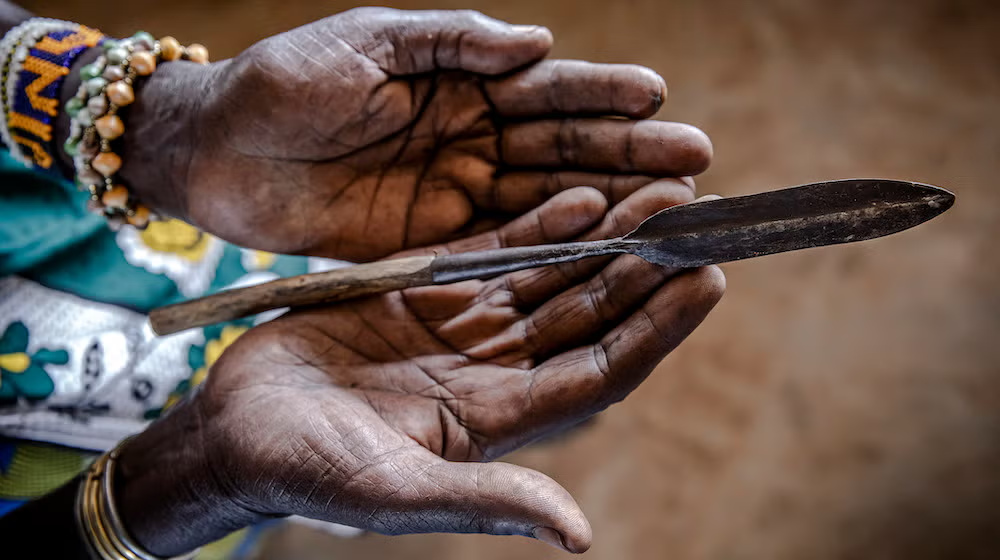By Amadu Massally
I was disappointed when I saw a letter on Facebook earlier this week by one of the candidates from a relatively smaller party, vying for the seat of the Presidency of Sierra Leone.
Today, I had the opportunity from my home in Dallas, Texas to watch and listen live to the partners of the “Great Debate” as I have dubbed it, slated for Wednesday, February 14th, 2018, Valentine’s Day! The power of social media yes? I heard clearly that the reason why those six parties were chosen, after weighing in on all the options they had, was to use a twenty-five percent threshold as the minimum limit for participation.
So if a party has at least 25% of the country covered with regard to their number of candidates, they would qualify to participate in the debate. All others falling short of that were disqualified.
Reasonably, citing that the total number of parties would have been counterproductive to a debate, the format which they had chosen especially, would last for two-and-a-half hours (at least on paper) with just six parties. Imagine if it was tripled had all the parties were involved. This outcome begs the question; why so many political parties in the first place?
To shorten a long story, let’s just say my original disappointment was lessened by the somewhat boxed-in democracy. But the aspiring egalitarian spirit in me still feels dampened a tad because if it was left up to me alone, I would have done all or none. And especially while I do know there are legitimate reasons to knock some of the parties of, a conscious effort would have been made to have both of the women candidates on the platform. I will address this later in the article.
I want to take this opportunity to talk about some of the concerns from the audience and the comments from our panelists in return throughout the rest of the piece. Inclusive of some of my own comments.
Manifestos – these are the promises that a given political party makes to their citizenry. In our case based on a high level of illiteracy, we can safely assume that they may be useful to only a small percentage of the voting population. They are not a leading indicator of what truly transpires so I broadly treat them with a grain of salt. However, they can be invaluable in terms of using them as a yardstick of accountability. The OSIWA Country Director, Joe Pemagbi, was acute in explaining what they are going to be doing around Presidential performance monitoring on a quarterly basis, if you will, against the President’s party’s manifesto. We look forward to that as a nation, but also on a personal note, it ties into what we plan to do post-2018 elections as I have shared in a few blogs. To monitor MDAs and CSOs, not excluding NGOs on performance.
Women – I will first of all praise the panelists based on bold discourse on women issues and empowerment; a cause I am already a big fan of. Mr. Mahmoud Tarawalie, as sharp as ever made good points with regard to women’s issues as did Joe and our man representing the Sierra Leone Association of Journalists (SLAJ), Raymond. The most poignant point made on the subject – at least to me – was when Mahmoud said we have been dilly-dallying with this women stuff for a long time now and if we are serious it falls back on policy, policy, and more policy.
Our surprise guest and moderator-designate, BBC Correspondent Hassan Arouni (whose family I have known from childhood days), also had a mouth full in support of women issues and reputedly said it is a “lie” when people say there are no qualified women going around for some of these positions.
In our Presidential and Parliamentary candidates, for example, only about 14 percent each represent women. And in the local council candidacy, we have a higher but at a mere 21 percent of women running for office.
Paradoxically, women are in the majority as Sierra Leoneans with fifty-one percent. It is NOT a woman’s world… and with the panelists, I agree with the fact that there has to be a conscious effort made because such evolution is not “organic” and must be sought, actively. I cannot agree more.
After I heard what all these men had said about women issues and the need for policy, however, I wanted to call in to the program to tell them that to have shown us clearly that they believe what they were saying about women, they should have made exceptions and opted to have one or preferably both of the women on the platform of aspiring candidates. That makes the event even more historic for Sierra Leone and possibly Africa. Two women among six men are 25%. Is it too late to make a case for that?
I really enjoyed the transparency displayed by panelists and the defense of the moderator when a caller tried to muddy up waters. Albeit a legitimate question based on fabrication as Hassan Arouni himself acknowledged the question was appropriate, but outright denied that he had not even met this person they say he knows, before. Never!
I was most impressed by the quality of questions asked
Note, this is the biggest thing around the elections this year outside of voting, and I have decided to give it the attention it deserves as we go into the second week of “silly season.” Stay tuned…















